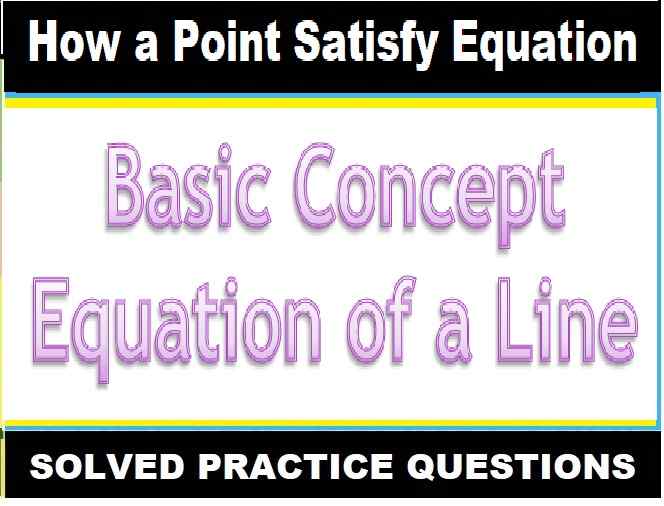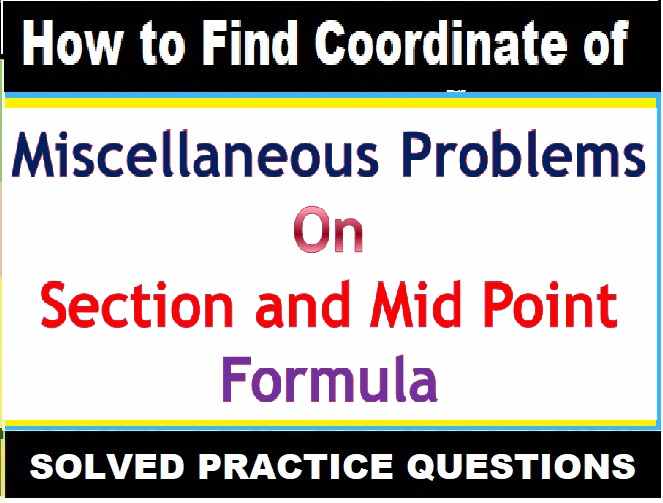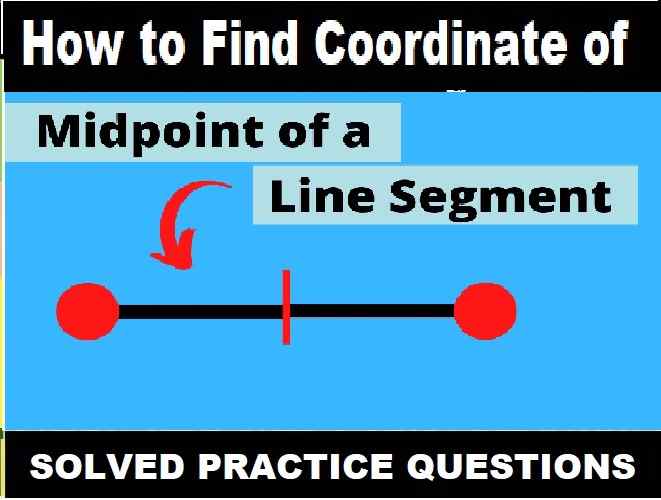Quadratic Equations Class 10 Exe- 5C RS Aggarwal Goyal Brothers ICSE Maths Solutions Ch-5. Step by step solutions of questions to guess nature of roots of quadratic equation without solving the equation. Visit official Website CISCE for detail information about ICSE Board Class-10.

Quadratic Equations Class 10 Exe- 5C RS Aggarwal Goyal Brothers ICSE Maths Solutions
| oard | ICSE |
| Subject | Maths |
| Class | 10th |
| Chapter-5 | Quadratic Equations |
| Writer/ Book | RS Aggarwal |
| Topics | Solution of Exe-5C Questions |
| Academic Session | 2024-2025 |
How to Find Nature of Roots of Quadratic Equations
To determines the nature of roots in a quadratic equation
- First the equation must be in the form of ax²+bx+c=0.
- If given equation is in another form then convert it in the form of ax²+bx+c=0.
- Find the value of a, b, and c .
- Then, put the value of a. b , c in formula, D = b2 – 4ac.
- From value of D (Discriminant) calculated guess the nature of root by following condition
- If D > 0, there are two distinct real roots;
- if D = 0, there’s one real root (equal roots);
- and if D < 0, there are no real roots exist
Exercise- 5C
Page- 61
Discuss the nature of the roots of each of the following equations without actually solving it :
Que-1: x²-8x+7 = 0
Solution- 2x2 + 8x + 9 = 0
a = 2, b = 8 and c = 9
∴ D = b²-4ac
D = (8)² – 4x2x9
D = 64 – 72 = -8
D < 0
So, rational and unequal.
Que-2: 6x²+7x-10 = 0
Solution- 6x²+7x-10 = 0
a = 6, b = 7 and c = -10
∴ D = b²-4ac
D = (7)² – 4x6x(-10)
D = 49 + 240 = 289
D > 0
So, rational and equal.
Que-3: 25x²+30x+7 = 0
Solution- 25x²+30x+7 = 0
a = 25, b = 30 and c = 7
∴ D = b²-4ac
D = (30)² – 4x25x7
D = 900 – 700 = 200
D = (10√2)²
D > 0
So, it is not a perfect square.
Que-4: 15x²-28 = x
Solution- 15x²-28 = x
15x²-x-28 = 0
a = 15, b = -1, c = -28
∴ D = b²-4ac
D = (-1)² – 4x15x(-28)
D = 1+1680 = 1681
D = (41)²
D > 0, it is a perfect square.
Que-5: 16x² = 24x+1
Solution- 16x² = 24x+1
16x²-24x-1 = 0
a = 16, b = -24, c = -1
∴ D = b²-4ac
D = (-24)² – 4x16x(-1)
D = 576+64 = 640
D = (8√10)²
D > 0, it is a not perfect square
Que-6: 2x²-2√6x+3 = 0
Solution- 2x²-2√6x+3 = 0
a = 2, b = -2√6, c = 3
∴ D = b²-4ac
D = (-2√6)² – 4x2x3
D = 24-24 = 0
D = 0, roots are real and equal.
Que-7: 2x²+2x+3 = 0
Solution- 2x²+2x+3 = 0
a = 2, b = 2, c = 3
∴ D = b²-4ac
D = (2)² – 4x2x3
D = 4 – 24 = -20
D = (2√5)²
D < 0, is not a perfect square
Que-8: 2x²-5x-4 = 0
Solution- 2x²-5x-4 = 0
a = 2, b = -5, c = -4
∴ D = b²-4ac
D = (-5)² – 4x2x(-4)
D = 25 + 32 = 57
D = (√57)²
D > 0, is not a perfect square.
Que-9: 5x²-13x-6 = 0
Solution- 5x²-13x-6 = 0
a = 5, b = -13, c = -6
∴ D = b²-4ac
D = (-13)² – 4x5x(-6)
D = 169+120 = 289
D = (17)²
D > 0, is a perfect square.
Que-10: 9x²-6x+1 = 0
Solution- 9x²-6x+1 = 0
a = 9, b = -6, c = 1
∴ D = b²-4ac
D = (-6)² – 4x9x(1)
D = 36-36 = 0
D = 0 are real and equal root.
Que-11: 3x²-2x+5 = 0
Solution- 3x²-2x+5 = 0
a = 3, b = -2, c = 5
∴ D = b²-4ac
D = (-2)² – 4x3x5
D = 4 – 60 = -56
D = (-2√14)²
D < 0, is not a perfect square.
Que-12: x²+2√3x-1 = 0
Solution- x²+2√3x-1 = 0
a = 1, b = 2√3, c = -1
∴ D = b²-4ac
D = (2√3)² – 4×1(-1)
D = 12+4 = 16
D = (4)²
D > 0, is a perfect square.
(Quadratic Equations Class 10 Exe- 5C RS Aggarwal Goyal Brothers ICSE Maths Solutions Ch-5)
Find the values of k for which each of the following equations has equal roots :
Que-13: 9x²+kx+1 = 0
Solution- 9x2 + kx + 1 = 0
Here a = 9, b = k, c = 1
∴ D = b2 – 4ac
= k2 – 4 x 9 x 1
= k2 – 36
∵ Roots are equal.
∴ D = 0
⇒ k2 – 36 = 0
⇒ (k + 6)(k – 6) = 0
Either k + 6 = 0, then k = -6
k – 6 = 0, then k = 6
∴ k = 6, -6 Ans.
Que-14: x²-2kx+7k-12 = 0
Solution- x²-2kx+7k-12 = 0
a = 1, b = -2k and c = 7k – 12
As we know that D = b2 – 4ac
Putting the value of a = 1, b = -2k and c = 7k – 12
= (-2k)2 – 4 x (1) x (7k – 12)
= 4k2 – 28k + 48
The given equation will have real and equal roots, if D = 0
4k2 – 28k + 48 = 0
4(k2 – 7k + 12) = 0
k2 – 7k + 12 = 0
Now factorizing of the above equation
k2 – 7k + 12 = 0
k² – 4k – 3k + 12 = 0
k(k – 4) – 3(k – 4) = 0
(k – 3)(k – 4) = 0
So, either
k – 3 = 0
k = 3
Or
k – 4 = 0
k = 4
Therefore, the value of k = 4, 3 Ans.
Que-15: (3k+1)x²+2(k+1)x +k = 0
Solution- The given quadric equation is (3k+1)x2 + 2(k + 1)x + k = 0, and roots are real and equal
Then find the value of k.
Here, a = (3k + 1), b = 2(k + 1) and c = k
As we know that D = b2 – 4ac
Putting the value of a = (3k + 1), b = 2(k + 1) and c = k
= (2(k + 1))2 – 4 x (3k + 1) x (k)
= 4(k2 + 2k + 1) – 4k(3k + 1)
= 4k2 + 8k + 4 – 12k2 – 4k
= -8k2 + 4k + 4
The given equation will have real and equal roots, if D = 0
Thus,
-8k2 + 4k + 4 = 0
-4(2k2 – k – 1) = 0
2k2 – k – 1 = 0
Now factorizing of the above equation
2k2 – k – 1 = 0
2k2 – 2k + k – 1 = 0
2k(k – 1) + 1(k – 1) = 0
(k – 1)(2k + 1) = 0
So, either
k – 1 = 0
k = 1
Or
2k + 1 = 0
2k = -1
k = -1/2
Therefore, the value of k = 1, -1/2 Ans.
Que-16: x²-2(5+2k)x+3(7+10k) = 0
Solution- The given quadric equation is x2 – 2(5 + 2k)x + 3(7 + 10k) = 0, and roots are real and equal
Then find the value of k.
Here, a = 1, b = -2(5 + 2k) and c = 3(7 + 10k)
As we know that D = b2 – 4ac
Putting the value of a = 1, b = -2(5 + 2k) and c = 3(7 + 10k)
= (-2(5 + 2k))2 – 4 x (1) x 3(7 + 10k)
= 4(25 + 20k + 4k2) – 12(7 + 10k)
= 100 + 80k + 16k2 – 84 – 120k
= 16 – 40k + 16k2
The given equation will have real and equal roots, if D = 0
Thus,
16 – 40k + 16k2 = 0
8(2k2 – 5k + 2) = 0
2k2 – 5k + 2 = 0
Now factorizing of the above equation
2k2 – 5k + 2 = 0
2k² – 4k – k + 2 = 0
2k(k – 2) – 1(k – 2) = 0
(k – 2)(2k – 1) = 0
So, either
k – 2 = 0
k = 2
Or
2k – 1 = 0
2k = 1
k = 1/2
Therefore, the value of k = 2, 1/2 Ans.
Que-17: (k+1)x²+2(k+3)x+(k+8) = 0
Solution- The given quadric equation is (k + 1)x2 + 2(k + 3)x + (k + 8) = 0, and roots are real and equal
Then find the value of k.
Here,
a = (k + 1), b = 2(k + 3) and c = (k + 8)
As we know that D = b2 – 4ac
Putting the value of a = (k + 1), b = 2(k + 3) and c = (k + 8)
= (2(k + 3))2 – 4 x (k + 1) x (k + 8)
= (4k2 + 24k + 36) – 4(k2 + 9k + 8)
= 4k2 + 24k + 36 – 4k2 – 36k – 32
= -12k + 4
The given equation will have real and equal roots, if D = 0
-12k + 4 = 0
12k = 4
k = 4/12
k = 1/3
Therefore, the value of k = 1/3 Ans.
Que-18: kx²+kx+1 = -4x²-x
Solution- kx² + kx + 1 = -4x² – x
Rearranging the equation:
(k + 4)x² + (k + 1)x + 1 = 0
Comparing this equation with the standard form ax² + bx + c = 0, we have:
a = k + 4
b = k + 1
c = 1
The discriminant (D) is given by D = b² – 4ac.
Substituting the values into the discriminant formula:
D = (k + 1)² – 4(k + 4)(1)
= k² + 2k + 1 – 4k – 16
= k² – 2k – 15
For equal roots, D must be zero:
k² – 2k – 15 = 0
To solve this quadratic equation, we can factorize it:
(k – 5)(k + 3) = 0
Setting each factor equal to zero:
k – 5 = 0 or k + 3 = 0
Solving for ‘k’:
k = 5 or k = -3 Ans.
Que-19: 3kx² = 4(kx-1)
Solution- 3kx2 = 4(kx – 1)
⇒ 3kx2 = 4kx – 4
⇒ 3kx2 – 4kx + 4 = 0
Here a = 3k, b = –4k, c = 4
∴ D = b2 – 4ac
= (–4k)2 – 4 x 3k x 4
= 16k2 – 48k
∴ Roots are equal
∴ D = 0
⇒ 16k2 – 48k = 0
⇒ k2 – 3k = 0
⇒ k(k – 3) = 0
Either k = 0
or
k – 3 = 0
⇒ then k = 3
k = 0, 3 Ans.
Que-20: x²+4kx+(k²-k+2) = 0
Solution-For the given equation x2 + 4kx + (k2 – k + 2) = 0
a = 1, b = 4k and c = k2 – k +1
Since the roots are equal,
b2 – 4ac = 0
⇒ (4𝑘)²-4×1×(𝑘²-𝑘+2) = 0
⇒ 16𝑘²-4𝑘²+4𝑘-8 = 0`
⇒ 12𝑘²+4𝑘-8 = 0
⇒ 3𝑘²+𝑘-2 = 0
⇒ 3𝑘²+3𝑘-2𝑘-2 = 0
⇒ 3𝑘(𝑘+1)-2(𝑘+1) = 0
⇒ (𝑘+1)(3𝑘-2) = 0
⇒ 𝑘+1 = 0 or 3𝑘-2 = 0
⇒ 𝑘 = -1 or 𝑘 = 2/3
k = 2/3 Ans.
Que-21: Show that the equation x²+ax-1 = 0 has real and distinct roots for all reals values of x.
Solution-D = b²−4ac
D = a² − 4(1)(1) = a²−4
for all the real values of a > 2 and a < −2
D > 0
Hence x²+ax+1 = 0 has real and distinct roots for all the real values of a.
Que-22: Show that the equation 3x²+7x+8 = 0 is not true for any real value of x.
Solution- 3x²+7x+8 = 0
D = b²-4ac
= (7)²-4×3×8
= 49-96 = -47
-47 < 0
So, the given equation has no real roots.
Hence, the given equation is not true for any real value of x.
Que-23: If the roots of the equation (c²-ab)x²-2(a²-bc)x+(b²-ac) = 0 are real and equal, show that either a = 0 or a³+b³+c³ = 3abc.
Solution- (c²-ab)x²-2(a²-bc)x+(b²-ac) = 0
Therefore, D = 0
4(a²-bc)² – 4(c²-ab)(b²-ac) = 0
(a^4+b²c²-2a²bc) – (b²c²-ab³-ac³+a²bc) = 0
a^4+ab³+ac³-3a²bc = 0
a(a³+b³+c³-3abc) = 0
So, either a = 0 or a³+b³+c³-3abc = 0 Hence Proved.
Que-24: If a,b,c ∈ R, show that the roots of the equation
(a-b)x²+(b+c-a)x-c = 0 are rational.
Solution- Here the given equation is
(a-b)x²+(b+c-a)x-c = 0
Now Discriminant of the equation = D
= (b+c-a)² – 4(a-b)(-c)
= (a-b-c)²+4(a-b)c
= (y-c)²+4yc where y = a-b
= (y+c)²
= (a-b+c)² > 0
Since a,b,c ∈ R
So the Discriminant is a perfect square number
Therefore the roots of the quadratic equation are rational
Hence proved.
Que-25: If a,b,c are rational, prove that the roots of the equation (b-c)x²+(c-a)x+(a+b) = 0 are also rational.
Solution-If roots of a quadratic equation are equal, then discriminant of the quadratic equation is 0
D = b²−4ac = 0
(b−c)x²+(c−a)x+(a−b) = 0
Comparing with
ax²+bx+c = 0
Here, a = (b−c), b = (c−a) and c = (a−b)
So,
⇒ (c−a)²−4(b−c)(a−b) = 0
⇒ c²+a²−2ac−4(ab−b²−ac+bc) = 0
⇒ c²+a²−2ac−4ab+4b²+4ac−4bc = 0
⇒ c²+a²+2ac+4b²−4ab−4bc = 0
⇒ (c+a)²+4b²−4b(a+c) = 0
⇒ (c+a)²+(2b)²−2(c+a)(2b) = 0
⇒ [(c+a)−(2b)]² = 0
⇒ c+a−2b = 0
⇒ 2b = c+a
: End of Quadratic Equations Class 10 Exe- 5C RS Aggarwal Goyal ICSE Solutions :–
Return to :– RS Aggarwal ICSE Class 10 Solutions Goyal Brothers
Thanks
Please, Share with your friends


